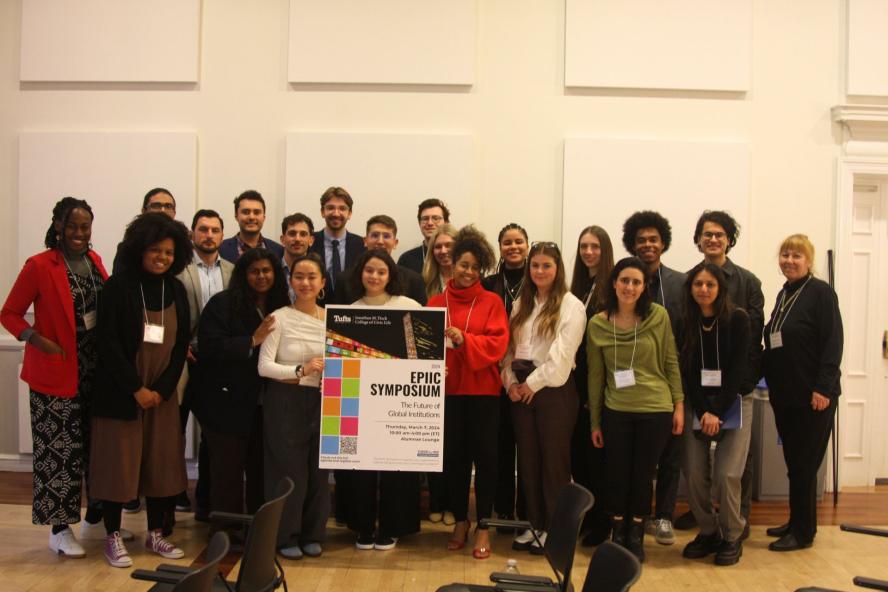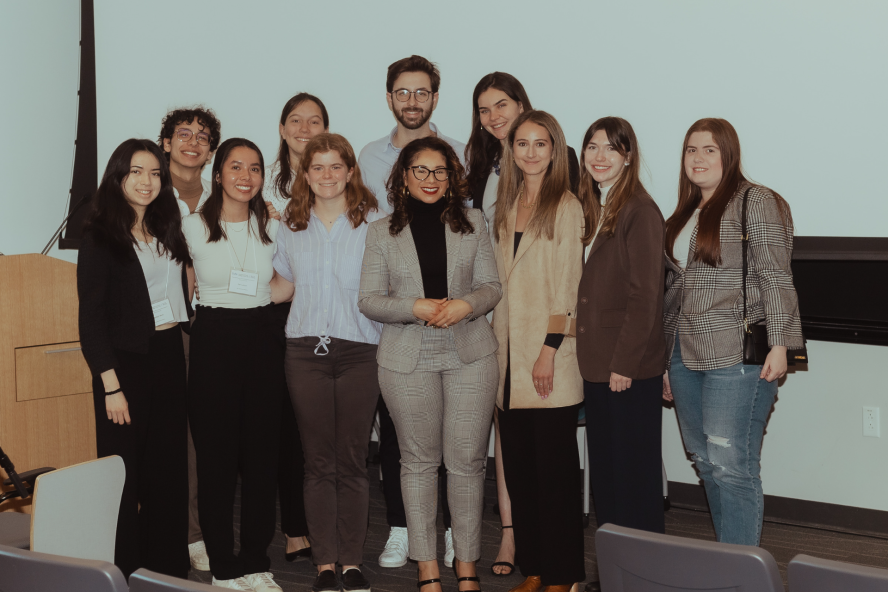Education for Public Inquiry and International Citizenship (EPIIC)
EPIIC is a carefully integrated, multidisciplinary program. Through its innovative and rigorous curricula and projects, EPIIC prepares young people for informed activity in their communities, whether locally, nationally, or globally.
The Course
At EPIIC's core is the year-long, multidisciplinary course, The Sherman Teichman Education for Public Inquiry (EPIIC) Endowed Colloquium, on a complex, global theme. Undergraduate and graduate students of diverse viewpoints, experiences, and interests participate in this rigorous colloquium that stresses critical, analytical, and normative thinking. They are taught the subject under investigation by a broad range of distinguished academics and practitioners and as active participants in defining the issues through classroom discussions, extensive readings, and independent research.
The Symposium
The EPIIC International Symposium is an annual, multi-day public forum featuring scores of international practitioners, activists, academics, public intellectuals, and journalists. EPIIC's symposia -- consisting of presentations, panel discussions, topical forums, informal gatherings, multimedia and dramatic presentations, and workshops -- are intellectually wide-ranging and accessible. The perspectives of the participants are intentionally diverse, often competing, and at times adversarial, providing a continuum of viewpoints on the issues being discussed.
Current Topic
The Future of International Institutions
The fundamental aim of this course is to understand the role of global institutions in contemporary world affairs. It begins with a critical consideration of the main theoretical concepts and debates about global institutions and global governance. It examines the creation and evolution of global institutions; organizational design; decision-making structures; and the domestic and international forces that impact their activities and effectiveness. It covers the United Nations system that is the cornerstone of global cooperation, including the World Health Organization (WHO), the Office of the UN High Commissioner for Refugees (UNHCR), the UN Development Program (UNDP), the UN Environmental Program (UNEP), and the World Trade Organization (WTO); as well as the principal multilateral financial institutions, the International Monetary Fund (IMF), and World Bank. The course considers the leadership role of the executive head of an international organization, especially the UN Secretary-General. It analyzes the substantive activities of global institutions on peace and security, development, human rights, the rule of law, humanitarian affairs, and the environment. The course ends with an exploration of the reform and legitimacy of global institutions, and the challenges and opportunities they face today.
This year’s EPIIC symposium will be Thursday, March 7, 2024.
For more information, contact Abi Williams.
2024 EPIIC Symposium
The 2024 EPIIC symposium on “The Future of Global Institutions,” was held in March 2024. IGL students hosted several panel discussions on sustainable development goals, the future of international organizations, UN peace operations, international mediation, US-UN relations, and global health. The keynote address was given by Ambassador Mark P. Lagon, Chief Policy Officer, Friends of the Global Fight Against AIDS, Tuberculosis and Malaria, and former Deputy Assistant Secretary of State, Bureau of International Organization Affairs, U.S. Department of State.


2023 EPIIC Symposium
The 2023 EPIIC symposium on “Power and Prejudice: Race and International Relations,” was held in March 2023. IGL students hosted several panel discussions on the prevalence of racial issues in global politics. Desirée Cormier Smith, special representative for racial equity and justice in the U.S. Department of State, delivered the keynote address for the symposium.